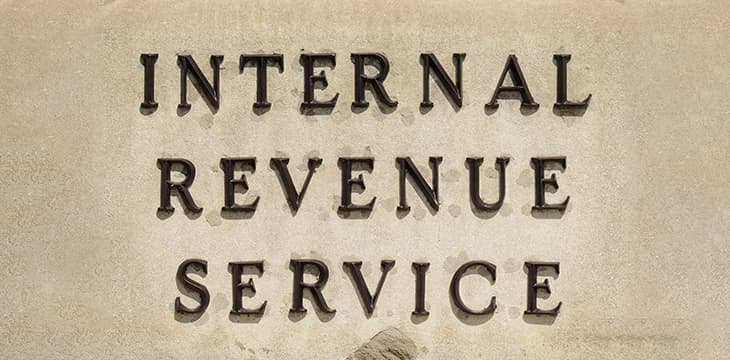|
Getting your Trinity Audio player ready...
|
Didn’t pay taxes on your digital asset profits? The IRS says it is improving its ability to track users’ digital asset holdings and even seize those assets if it’s owed.
The news is hardly unexpected—the IRS stated in 2014 that it regards digital assets as property for tax purposes (rather than “currency”), giving itself the authority to seize it directly for payment of back taxes even if holders don’t do it willingly.
So far, the IRS has refrained from taking such action. However, with awareness of digital assets and profits from speculative trading both booming in the past few years, it’s becoming impossible to ignore.
“Bottom line: The IRS will seize that property and will attempt to follow its usual procedures to sell it and use it to satisfy collection,” said the IRS’s deputy associate chief counsel at a virtual conference of the American Bar Association, according to news reports.
The U.S. news follows a report from South Korea last month that the Seoul Metropolitan government had already seized US$22 million worth of BTC, ETH, XRP and other digital assets directly from exchange accounts, for the same reason.
Almost 700 individuals and business accounts in the city saw their balances unilaterally seized. Where the Seoul authorities didn’t take the assets directly, users received notices saying the government was aware of their holdings and owed taxes. Some users pleaded with the government not to sell their assets straight away, requesting they hold them for up to two years in anticipation of future price gains.
Defiance from digital asset traders
BTC’ers on Twitter reacted with expected defiance to the IRS’s plans:
Good Luck Getting it out of Cold Storage. Not your keys not your coins
— NightFlux (@NightfluxLive) May 13, 2021
How the hell would they get a hold of them???? They can't even hack an IPhone let alone a crypto wallet
— Sat Vader ₿ 🟩 💎🤲 (@RNCrypto74) May 13, 2021
https://twitter.com/lacrossemsu17/status/1392997714296705024
However, if the recent events in Seoul are any guide, U.S. tax authorities likely intend to keep records of digital asset holdings in online accounts, and seize them directly from those accounts when required.
Since most popular digital assets, particularly BTC, have high transaction fees and little real-world utility outside of speculative trading, a high proportion of those assets live in exchange wallets, rather than users’ cold storage. This is despite years of hacks and other security breaches that have seen billions of dollars’ worth of digital assets drained from exchange accounts, and repeated warnings that exchange wallets are never completely secure.
Governments have also invested plenty of time and resources in tracking digital asset transactions and improving KYC/AML measures at online exchanges. Just this month, the IRS partnered with TaxBit to supply data analysis and tax calculation software (TaxBit also provides the same services to consumers looking to pay taxes according to the rules).
Put simply, if you keep your digital assets in exchange wallets and use online exchanges for trading at all, the IRS and other tax agencies are well aware of it. They also keep tabs on where those assets go once they leave the exchange—putting it into “cold storage” may increase the number of steps authorities need to take in tracing those assets, but all the information is ultimately searchable on permanent blockchain records.
Paying taxes is never popular with the public, but the old maxim that death and taxes are the only two guarantees in life still rings true. Digital assets provided a new way for users to hide their money, for a while, but it was always inevitable that governments would find ways to trace and seize them once they became too big to ignore (and their understanding of the technology improved).
See also: CoinGeek Live panel on Regulation of Digital Assets & Digital Asset Businesses

 03-01-2026
03-01-2026 




